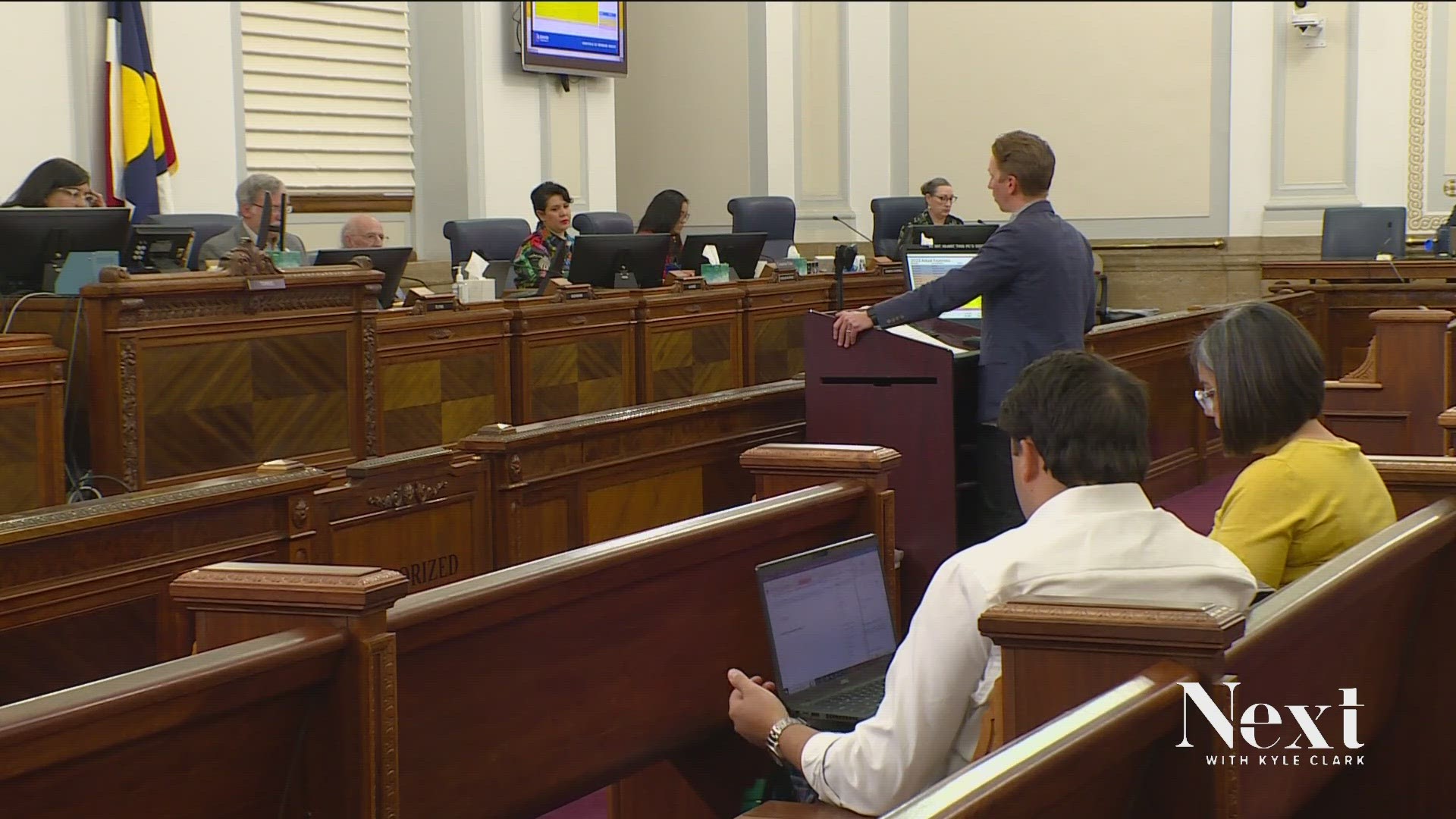DENVER — On Wednesday, Denver city council members had their chance to ask the same questions 9NEWS has been asking for days. However, not even the people in charge of the city’s spending could figure out how much the mayor’s homelessness initiative is costing. It's estimated to be somewhere between $10 million and $110 million.
9NEWS came to Denver city council in search of answers. Instead, the Safety, Housing, Education and Homelessness Committee meeting was full of more questions, from everyone.
"What is the monthly cost on average for the hotel sites?" Councilwoman Stacie Gilmore asked.
"Was $46 million needed for the first House1000 goal?" Councilwoman Jamie Torres asked.
"So, we are looking at actuals of $75 million in 2024 for this project?" Councilwoman Amanda Sawyer asked.
"We just need to see that. This feels really incomplete to me," added Councilwoman Sarah Parady.
It should be a simple question. How much is the mayor’s House1000 homelessness initiative costing the city? There were no answers at the House1000 financials meeting, despite the name.
"Our actual expenses in 2023 came in much lower than we anticipated. Only $10.3 million were spent in 2023," said Cole Chandler, a senior advisor to the mayor of Denver.
$10.3 million is the only real number the mayor’s office can give for how much money has been spent so far. More than $110 million has already been approved by city council. So, where’s all the money going? We aren’t the only ones asking.
"Help me understand and not be so shocked that you only spent $10 million of the $46 million in 2023," Torres asked.
The story that Next has been telling you about for days now has the attention of other cameras. In Wednesday's meeting, it was also revealed that the vast majority of people exiting House1000 shelters are leaving to be homeless again, go to jail, or even dying.
"Do we have an idea of why we are seeing that 73% of the people who are exiting are exiting into a negative outcome?" Sawyer asked, referring to new data on the city's homelessness dashboard that shows outcomes for people in House1000 or All In Mile High shelters. The numbers include nine people who have died.
"We and our partners don’t count deceased as a negative outcome," responded Midori Higa, director of homelessness resolution programs for the City of Denver.
"I’m not sure I’m comfortable with that," Sawyer said.
"There's many reasons someone could pass away. The primary reason we don't count deceased as a negative outcome is because someone is dying inside. They're not dying frozen on the street," Higa added.
While the city doesn’t count death as a negative outcome, more positive outcomes seem hard to come by. Of the roughly 1,000 people who moved into hotels or micro-communities after living on the streets, the city’s dashboard says only 21 have left with leases for their own permanent housing.
"How are we going to improve our outcome rate," Sawyer said. "We’re spending a significant amount of tax dollars. We have to be able to say to our taxpayers that we are using those dollars wisely."
There’s been at least two shooting, seven deaths and around 500 911 calls to the former DoubleTree Hotel in Central Park that’s now used as a shelter. That shelter is operating with about 50% staff, the mayor's office said Wednesday. There are 30 open positions right now. Safety has always been a concern there, but there was no previous indication they need dozens more people to run the shelter.
More from Marc Sallinger:
SUGGESTED VIDEOS: Next with Kyle Clark

